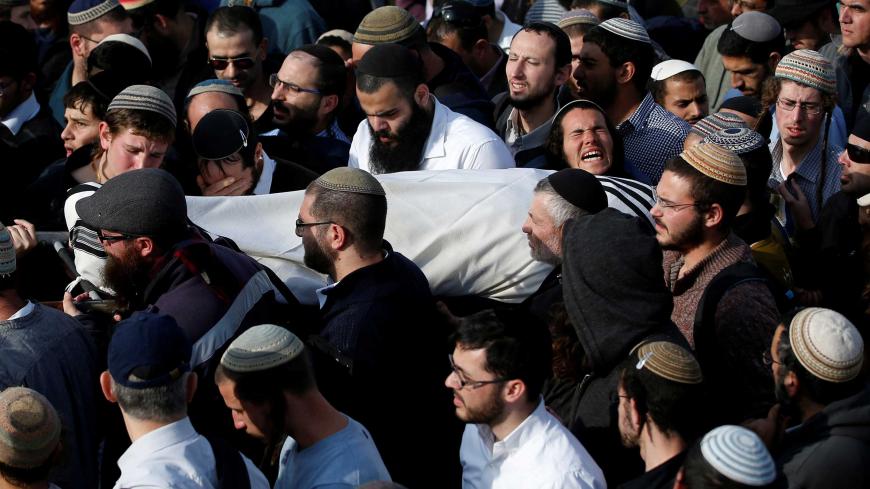The funeral procession of Rabbi Raziel Shevach, who was killed Jan. 9 in a shooting attack in the West Bank, took place in the illegal outpost of Havat Gilad. The settlement had no cemetery until the rabbi's death, but in a hasty decision made together with the rabbi's family, the settlers decided to prepare a plot and bury him in the unauthorized settlement where he lived.
By doing this, the settlers of Havat Gilad established a new fact on the ground. Not only had they created the outpost, which grew from a small farm into a settlement that is now home to 40 families, their decision to act rashly and establish a cemetery in the settlement makes any future evacuation of the settlement virtually impossible.



